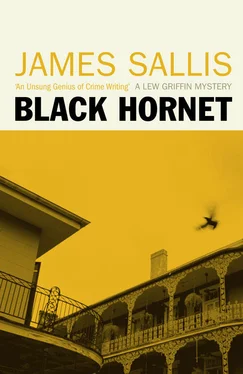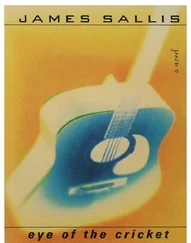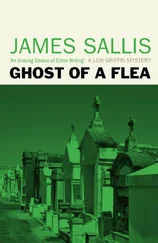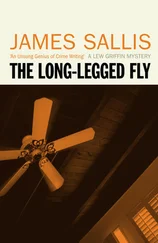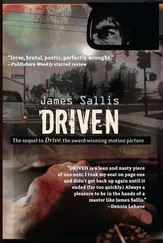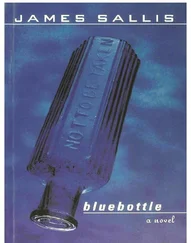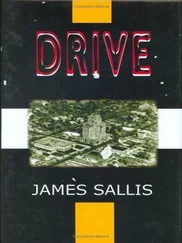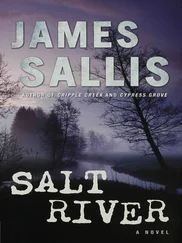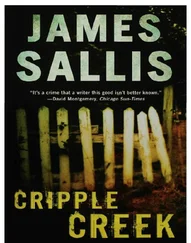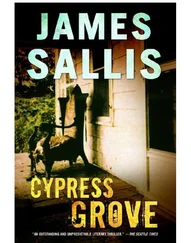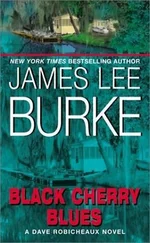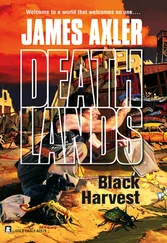James Sallis - Black Hornet
Здесь есть возможность читать онлайн «James Sallis - Black Hornet» весь текст электронной книги совершенно бесплатно (целиком полную версию без сокращений). В некоторых случаях можно слушать аудио, скачать через торрент в формате fb2 и присутствует краткое содержание. Жанр: Криминальный детектив, на английском языке. Описание произведения, (предисловие) а так же отзывы посетителей доступны на портале библиотеки ЛибКат.
- Название:Black Hornet
- Автор:
- Жанр:
- Год:неизвестен
- ISBN:нет данных
- Рейтинг книги:4 / 5. Голосов: 1
-
Избранное:Добавить в избранное
- Отзывы:
-
Ваша оценка:
- 80
- 1
- 2
- 3
- 4
- 5
Black Hornet: краткое содержание, описание и аннотация
Предлагаем к чтению аннотацию, описание, краткое содержание или предисловие (зависит от того, что написал сам автор книги «Black Hornet»). Если вы не нашли необходимую информацию о книге — напишите в комментариях, мы постараемся отыскать её.
Black Hornet — читать онлайн бесплатно полную книгу (весь текст) целиком
Ниже представлен текст книги, разбитый по страницам. Система сохранения места последней прочитанной страницы, позволяет с удобством читать онлайн бесплатно книгу «Black Hornet», без необходимости каждый раз заново искать на чём Вы остановились. Поставьте закладку, и сможете в любой момент перейти на страницу, на которой закончили чтение.
Интервал:
Закладка:
Stepping back from the podium, Dent began applauding. Applause caught here and there in the audience and spread.
The man who shambled onstage did not look heroic. More than anything else, he looked tired. He was tall, light on his feet and subtly elegant in the way that dancers often are, with delicate features, close-cropped hair, medium skin. He wore a black suit that fit well enough to have been tailored, navy-and-maroon tie, starched white shirt. When the applause died and he looked up, his eyes were dark, intense and full, glimmers of emotion and understanding spilling out from them even as they swept in the finest details of the physical world around them.
Vitriol? Impassioned speech? Anger?
You better believe it.
But at the same time a rare truth: this gentle, cultivated voice, at first so low we could barely hear it, urging us on toward what we might be, imploring us to settle for nothing less than the best within us. To recognize that we had been set against ourselves, turned into our own worst enemy. Whenever walls get torn down, he said, the bricks are simply carried off elsewhere, another wall put up.
He read briefly from The Primitive and If He Hollers , and concluded:
“If our plumbing for truth, whether as a writer, like myself, or simply as individuals looking back over our experiences-if this plumbing for truth reveals within the Negro personality homicidal mania, lust, a pathetic sense of inferiority, arrogance, hatred, fear and self-despite, we must recognize this as the effect of oppression on the human personality. For these are the daily horrors, the daily realities, the daily experiences-the life-of black men and women in America.”
Too soon it was over.
Lights came back full. All around us people stood, retrieving coats, streaming into the aisle.
“You want to hit the reception?” Straughter said.
Why not.
So we ate more crackers and cheese cubes and drank more wine out of plastic cups.
At Dr. Dent’s house, amidst clusters of academics, students and activists, Himes sat on the couch pouring Jack Daniels into his coffee mug. When the other person there left, I sat down beside him, and without saying anything he reached over and poured into my own cup.
“Not a writer are you?” he asked.
“No.”
“Teacher?”
I shook my head.
“Good. You stay there.”
And I did, bourbon periodically splashing into my cup, till three hours later I struggled to my feet, said good-bye to Himes, somehow found Straughter and the door and walked through the latter with the former.
That morning once Leo and Clifford left (well, really now it was the day before), I’d toppled back into bed and slept straight through, fourteen, fifteen hours, till Straughter came banging at the door to bear me off. Verne had been by and left another note that said “Even zombies get up and walk around sometimes, Lew.” I think someone else pounded at the door at one point, but that may have been a part of the dream in which I found myself wandering in a foreign land where buildings, trees, the whole landscape were unrecognizable. Two groups lived there, neither of whose language I could understand at all, neither of which seemed much to care whether I stayed with them or straggled off again to the other. Mostly they spent their time gouging and pounding wood into canoelike boats they never used.
Straughter and I were both pretty drunk, and after an hour or so of stumbling around saying things like “We already been by here” and “House looks awful familiar,” we finally admitted that we had no idea where he’d parked his Falcon-or for that matter, after all this, where we were.
Probably just as well, Straughter said, he ought not be trying to drive anyway. So what the hell, he’d just hoof it on home. Could almost always do that in N’Orleans. Come back later today and hunt down the Blue Bird. Wouldn’t be the first time.
“Need to head over that way,” he said, absolutely certain of it. “Yep. To-ward Freret,” the preposition two syllables.
“River’s that way, Hosie.”
But he was adamant, mule stubborn as my folks used to say, so we parted.
I walked toward the river until (I was right!) I hit St. Charles. Then down it toward town. The streetcar had long since stopped running. There was little traffic.
At some point, I remember, for whatever reason, taking off my shoes. Striding along barefoot, oblivious to how broken and uneven the sidewalks were.
I remember stepping off at last into cool, damp grass for relief.
I remember dogs barking and leaping at fences just inches from me.
I remember a police car cruising slowly by me, once, twice, as I trod along, pacing me, pausing a third time alongside with the crackle of its radio audible, at last passing on.
Fragments.
I awoke that afternoon with feet so bloody and torn that I could barely hobble to the bathroom, to a tub of warm water with baking soda. Three beers lined up tubside to help quell pounding heart and head, nausea, shakes.
Not only had I taken to hot pavement in bare feet, I had first hiked to my old apartment on Dryades. When the key failed to work, I realized my lapse and walked back up to Washington. Though not by any direct route, I’m afraid: I had vague memories of far-flung parts of the city.
In the tub I swallowed beer the way a beached fish gasps at air and thought over what Leo and Clifford had told me yesterday morning.
Yoruba was an inkblot, they said: many things to many people. For some it was basically religious, a church. Others perceived it as essentially activist, which, certain ways, certain times, it was; and that was what attracted them. Some were drawn to, saw as foremost, its community service.
“I see what you mean. All things to all men.” Leo nodded.
“Tough part for any actor.”
“You have a lot of eggs, they won’t fit in a single basket,” Leo said. “You take care of them.”
“You’re saying Yoruba’s not straight? That the game’s fixed?”
“I’m saying the house always has the odds.”
Clifford spoke up: “There’s another thing. Another side of Yoruba, another service it provides.”
“Banking,” Leo said.
“A lot of people in the community resent white banks. Don’t trust them-or just don’t want to have to deal with them. Yoruba’s their bank.”
Chapter Seventeen
“He’s become invisible,” Walsh said. “Gone to ground.”
Or more likely to air, I thought: up.
“I do keep running into your friend Doo-Wop. Ask me, I think he likes the idea of working with a cop.”
“He have anything?”
Walsh shook his head.
“Sooner or later, he will. Of course, it could just as easily be three years from now as it could be next week.”
“And he wouldn’t recognize the difference.”
“Exactly.”
Four P.M. We were sitting in Dunbar’s, at a table whose top still showed evidence of the noontime rush: crumbs, splotches of sauce, a plug of bread lodged against the sugar bowl. Several tables remained uncleared. Officially the restaurant was closed, and we were the only customers. The owners-Alphee Dunbar, whom everyone called Tia, her companion of fifty-some years, Gilbert, and a somewhat younger man, John Gaunt, whose role both in restaurant and the others’ private life had been all these years a matter of speculation-sat at the table nearest the kitchen over a steaming pot of barbequed shrimp. A platter of ribs covered most of our own table. We each had a couple of beers lined up there too. On the TV up by the cash register Danny Thomas had just given way to Science Fiction Theater. The sound was turned off.
I filled Walsh in on my visit from beret brothers Leo and Clifford, what they’d had to say about Yoruba. He told me yeah, NOPD’d been running into these rumors about some kind of underground banking organization for two, three years now. Word was, it just might violate a handful of federal laws, in principle if not letter, and both the FBI and T-men were supposed to be looking into it.
Читать дальшеИнтервал:
Закладка:
Похожие книги на «Black Hornet»
Представляем Вашему вниманию похожие книги на «Black Hornet» списком для выбора. Мы отобрали схожую по названию и смыслу литературу в надежде предоставить читателям больше вариантов отыскать новые, интересные, ещё непрочитанные произведения.
Обсуждение, отзывы о книге «Black Hornet» и просто собственные мнения читателей. Оставьте ваши комментарии, напишите, что Вы думаете о произведении, его смысле или главных героях. Укажите что конкретно понравилось, а что нет, и почему Вы так считаете.
